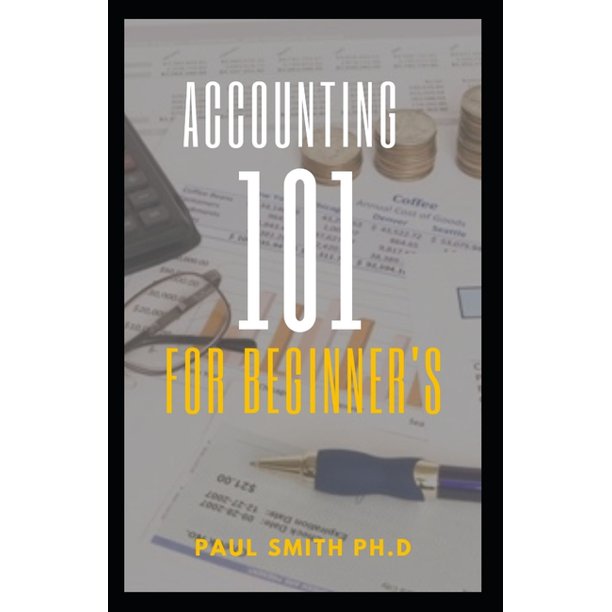
Delivering products or services that exceed customer expectations is quality performance. It includes planning, designing and producing the perfect product or service at the appropriate time, in a timely manner, and for the correct price.
It takes time and effort but the results are worth it. It allows companies to save money and keeps them in business.
Although the concept of quality can be difficult to define, it is a basic principle that companies should create products and services with high quality. This can be achieved by many different methods, including training employees to become more efficient, offering customer service and adding new features that make the product/service more appealing.
The performance of a firm compared to its competition is crucial for its success in the market. Higher performance can mean higher profits, better customers, and more market shares.

However, it is important to note that not every product needs to have the highest level of performance. There are many things that can influence a company’s performance such as competition and budget.
This article will cover the basics about quality, how quality can be maintained, and how training should be approached in a performance consulting environment.
What is Performance Consulting and how can it help you?
Performance consulting is an approach that brings in outside expertise to improve an organization's performance. It is an alternative management approach to managing by objective. It aims to create a culture where people are accountable and teamwork is encouraged.
It can help employees who are less productive due to misunderstandings, conflicts, or other factors.
There are many options for measuring quality. Each method is different and has its own goals. Some methods are more specific than other, but they all seek to find the root of the problem, determine a fix, and evaluate the effectiveness.

Some of the methods are based on the Deming cycle, which is a step-by-step process that helps improve performance and keeps the company focused on its objectives.
The first thing that you need to do is identify a business goal for your organization or program. It is crucial that you clearly define your goals and that everyone in the company has a common understanding of how to achieve them.
The first step is to identify the major components of your goal. Next, break those down into sub goals and actions steps. This will enable you to plan the next steps and ensure that the project brings value to your business.
This will allow you to focus your efforts in the areas that are most important. While you can use any strategy to reach your goals, there are some key principles that must be followed in order for them to work. These principles are:
FAQ
What is the secret to modern consulting?
Accounting professionals were the first to become consultants. They helped companies manage their finances. Their skills in managing financial information led to them being called "accounting consultant". But, their role soon expanded to other areas such as human resource management.
The French word for advice, "consultant", was originally used to describe someone who could advise on the management of an organization. In fact, most business owners today still use the word consultant when referring to any kind of professional advisor.
What can I count on from my consultant to help me?
When you choose your consultant, they should respond within a few working days. They will request information about your company including its mission and goals, products, services, budget, and other pertinent details. Next, they'll provide a proposal describing the scope and estimated time frame, fees, deliverables or milestones, as well as an estimate of costs.
If all goes according to plan, the two sides will sign a written deal. The type of relationship between the parties (e.g., employee-employer, independent contractor-employer) will affect the terms of any contract.
If all goes according to plan, the consultant will begin working immediately. The consultant will have access your internal documents and resources. Additionally, you'll have access their skills and knowledge.
Don't assume that someone who is a consultant knows everything. To become an expert in any field you consult, it takes practice and effort. Your consultant should not assume that they know everything about you business.
What industries employ consultants?
There are many types of consultants. Some are specialists in one type or another of business.
While some consultants only work for private companies, others represent large corporations.
And some consultants work internationally, helping companies all over the world.
How much should a consultant charge?
It depends on what you are offering. If you're providing services for free, there is no reason to charge anything. However, if you are selling products or services, then you need to set prices based on value.
If you are offering low-quality services, you don't have much to sell. You are not worth anything, so why should anyone pay you anything.
If you provide high-quality service, you may ask for higher prices because people appreciate the value you offer. Also, clients who purchase multiple packages from your company may get discounts.
How do I set up an LLC to consult?
You must first figure out what you want to do as a service provider. Then, make sure that you are qualified for these services. It might also help to find someone who already does what you want to offer and see how they operate.
Once you know your product/service, you should start looking for the right market. If you don't have enough, you might need to create them.
You will then need to decide if it is worth starting your own business, or hiring others to do it.
The state may also permit you to open your own consulting company. However, it requires some paperwork and fees.
How much does it cost for a consultant to be hired?
There are many factors that influence the price of consulting services. These factors are:
-
Project size
-
Time frame
-
Scope of work
-
Fees
-
Deliverables
-
Other considerations like experience level, geographical location, etc.
What is a consultant?
Consultants are those who offer services to other people. It's more than just a job title. This role allows you to help others achieve their dreams. You do this by helping them understand their options and helping them make the right choices.
Consultants are experts at finding solutions to problems and challenges that arise when working on projects. Consultants can also offer advice and guidance regarding how to implement these solutions.
Consultants should be able and willing to answer any questions regarding business, technology or finance, leadership, strategy, customer service, legal, management, leadership, management, law, management, law, procurement, legal, marketing, human resources, etc.
Statistics
- "From there, I told them my rates were going up 25%, this is the new hourly rate, and every single one of them said 'done, fine.' (nerdwallet.com)
- According to IBISWorld, revenues in the consulting industry will exceed $261 billion in 2020. (nerdwallet.com)
- So, if you help your clients increase their sales by 33%, then use a word like “revolution” instead of “increase.” (consultingsuccess.com)
- Over 62% of consultants were dissatisfied with their former jobs before starting their consulting business. (consultingsuccess.com)
- Over 50% of consultants get their first consulting client through a referral from their network. (consultingsuccess.com)
External Links
How To
How do you find the best consultant?
It is important to first ask yourself what you expect from a consultant when searching for one. You should know exactly what your expectations are before you start searching for someone. Make a list of everything you think you might need from a consultant. This could include: professional expertise and technical skills, project management capabilities, communication skills, availability, etc. Once you have identified your requirements, you might consider asking friends and colleagues to recommend you. Ask them about their experiences with consultants and compare their recommendations to yours. Try searching online for recommendations if you don’t have any. Many websites allow people to post reviews about their work experience, including Angie's List and Indeed. Consider the ratings and comments of other candidates and use these data to start your search for potential candidates. Once you have a shortlist, be sure to contact potential candidates directly to schedule an interview. At the interview, it is important to discuss your requirements and get their feedback on how they can help. It doesn't really matter if they were recommended; as long as they understand your business objectives, they will be able to show how they could help you achieve them.